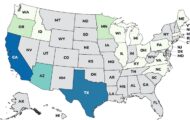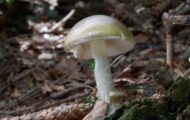The FDA is investigating a pattern of contamination in some raw pet foods made by Arrow Reliance. This includes Darwin’s Natural Pet Products and ZooLogics Pet Food. Four recalls of those products have been issued from October 17, 2016 to February 10, 2018. You can see the list of these recalls at the FDA web site. Positive findings of Salmonella and/or Listeria monocytogenes bacteria triggered all of the recalls.

In the most recent recall, Arrow Reliance/Darwin’s Natural recalled ZooLogics Duck with Vegetable Meals for Dogs (Lot #41957) and ZooLogics Chicken with Vegetable Meals for Dogs (Lot #41567) because the products may be contaminated with Salmonella bacteria. The products are one sold only through direct-to-consumer sales.
The FDA has investigated six complaints of illness and death in animals that have eaten the recalled foods. Arrow Reliance/Darwin’s Natural has notified its customers of these recalls, but has not issued any public notification. The issue here is that the pathogenic bacteria that may be in these products can make both animals and people sick.
The FDA hs confirmed that new samples of Darwin’s Natural Pet Products raw pet foods have tested positive for Salmonella bacteria. The recall was triggered by an adult dog which had recurring diarrhea over a period of nine months. The dog tested positive for Salmonella by its veterinarian and by follow up testing conducted by the FDA’s Veterinary Laboratory Investigation and Response Network (Vet-LIRN). The Darwin’s Natural raw pet food that the dog had been fed also tested positive for Salmonella.
Since October 2016, Arrow Reliance/Darwin’s Natural has had four recalls that the company initiated, and received six complaints associated with their raw pet food products. One kitten died from a severe systemic Salmonella infection. The Salmonella isolated from that kitten was analyzed with whole genome sequencing (WGS), and was indistinguishable from the Salmonella isolated from a closed package from the same lot of Darwin’s Natural cat food that the kitten ate.
The FDA is also aware of at least three animals who were injured by bone shards in the Darwin’s Natural raw pet food products. These products are made with ground-up bone and raw meat.
Contaminated pet food is a hazard to animals and humans. Pets can get sick and can pass the bacteria on to their owners. Animals that appear healthy can harbor pathogenic bacteria. Raw pet food is more likely to contain Salmonella and Listeria monocytogenes bacteria.
The FDA has zero tolerance policy for Salmonella and other pathogenic bacteria in all pet food. The agency will take action against any pet food that is contaminated with these bacteria.
Pets may display lethargy, fever, decreased activity level, loss of appetite, diarrhea that may be bloody, and vomiting if they contract a Salmonella infection. People usually develop diarrhea that may be bloody, fever, abdominal cramps, and vomiting. Some complications of this infection can included dehydration and sepsis, which is an infection of the bloodstream.
Young children are most at risk for this infection because they may handle or eat contaminated food, or touch unwashed bowls or kiss an infected animal. Very young children may be exposed by crawling on contaminated surfaces or by putting their fingers in their mouths after petting an animal.
In fact, a recent Salmonella outbreak in Minnesota has sickened two children. Those illnesses have been linked by the Minnesota Department of Health to recalled Raws for Paws raw pet food. One of the children was hospitalized with osteomyelitis, a painful and serious bone infection that is a complication of a Salmonella infection.
If you choose to feed your pet a raw diet, be aware of these dangers. Watch for recalls of this type of food. Always clean and disinfect bowls, utensils, food preparation surfaces, pet bedding, toys, floors, and other surfaces that may have come into contact with the pet or its food. It’s very important to thoroughly clean up pet feces in yards or parks since the animals can shed the bacteria in their poop. Wash your hands well, and especially your child’s hands, with soap and water after handling the food and after petting or coming into contact with pets that are fed raw food.




